Prime Travel Data
Elementary Travel Information for Europe
Native name, capital city, postal codes, telephone codes, languages, electrical voltage,
holidays (dual language), embassy, consulates, USA embassy, guide books, maps, history.
Appendix to
HOW TO EUROPE:
The Complete Travelers Handbook
John Bermont
This entire book is published totally free on-line by the author, photographer, and webmaster, yours truly, with help from my daughter Stephanie. I welcome all questions, comments, and complaints. For contact information please see NOTE TO READERS. Updated 24 January 2016.
Carpe diem. Vivere bene! Gratia Deo.
"Data! data! data!" he cried impatiently. "I can't make bricks without clay."
So said Mr. Sherlock Holmes to Dr. John Watson in "The Adventure of the Copper Beeches" by Sir Arthur Conan Doyle.
The information on this page will help you to keep your feet on the bricks and out of the clay.
The Prime Travel Data page for each country of Europe linked in the right column consists of elementary information known to the majority of the citizens but not necessarily to visitors. For example: their postal code, money, dates for holidays, time zone, and some other basic infrastructure. Please read the following discussion of the content and then follow the links to each country. This is a work in progress so a number of countries are not yet posted.
NATIVE NAME
The names that we know places by are not always the names used by the local citizens. For instance if you see Suomi on a timetable or rail car, you might not know that it is really Finland. Finns know that it is really Suomi, their name for their homeland.
Along the same line, citizens of other countries seldom use the names that the country itself uses. Over in France, for instance, Germany is known as Allemagne. In Germany, France is known as Frankreich. Listing all the cross references here would consume a few extra trees a/o kilobytes. Consult your Berlitz Travelers phrase book for others. In the Reference Section of each is a list of countries with the names as known in the language for which the book is written.
CAPITAL CITY
The capital city is shown in its American spelling. If there is a different local spelling, that name is shown in italics. For example, Americans know the capital of Austria as Vienna. Austrians know it as Wien. Dutch people call it Wenen (you probably don't need to know that.).
POSTAL CODE
Each European country has an internationally recognized abbreviation. For the United States it is USA. The code for Switzerland is CH (Confederation Helvetica), though the code for most other countries is more easily recognizable. The code is used as the prefix in postal zone codes for international mail.
You see the country code most often on license plates of autos registered in the EU. It is enclosed in a small blue field which also includes the EU circle of gold stars. Formerly it was on an oval sticker on the rear of automobiles in Europe. The oval sticker, about 4" x 6", was placed near the license plate.
TELEPHONE CODE
Each country has a telephone code for incoming international calls. This number is usually shown on letterheads and business cards with a + (plus sign) in front of it. The same convention is used here.
The telephone code for North America, including the USA, Canada, and most of the Caribbean, is +1.
There is more information on making international telephone calls in How To Europe: The Complete Travelers Handbook. The telephone chapter is available online for a free read at part 1 of chapter 19, Telephoning to, from, and within Europe.
LANGUAGE
Languages listed for each country are those used officially or in print and conversation. It is not necessary to know these languages to travel, though it is very helpful. Generally you will have little trouble communicating in English in western Europe since it is the second language of many people. When you are traveling in eastern Europe, the best second language would be German or perhaps Russian. My limited German was understood by police in Slovakia and Ukraine and was very valuable in other countries as well.
If two or more languages are listed, each is usually a regional language. Do not expect everybody to be bilingual. In fact, Belgian citizens sometimes riot over the use of Walloon (French) or Flemish (Dutch). Brussels, the capital city, is officially bi-lingual, but the rest of the country is divided in half by a strong linguistic wall.
In some cases, a second language is not listed here because it is spoken in a very limited region of the country. For example Basque is spoken in the north of Spain around San Sebastián, (one of the most beautiful cities of Europe). German is common in the Sud Tirol area of northern Italy around Bolzano, known as Bozen in German. German is even an official language in a small part of Belgium. There are a few similar cases.
For much more about the languages of Europe see chapter 26 of How To Europe at Languages, Numbers, Alphabets: Encounter the Tower of Babel in Europe.
CURRENCY
Name
The name of the currency of each country is shown as it is on the coins and bank notes. Just as Americans call the dollar a buck or a greenback, slang terms are often used in Europe. British commonly talk about the price of things in quid rather than in pounds. The Scandinavians typically translate their unit of money into English. For example, in Denmark a krona is often called a crown.
As of January 1, 2002 the euro debuted as the currency of 11 European nations. Gone to the trash bin of history were the French franc, Dutch guilder, Italian lira, and many other currencies. The euro makes travel much easier in the 19 countries now using it. But, there are another 30+ countries with their own currencies, prominent among which are Switzerland and the United Kingdom, i.e. England.
Value
The value of European currencies relative to the US dollar and to each other changes every day. In order to find out what exchange rates you will be facing on your trip, check the financial section of a major metropolitan daily newspaper or call your bank.
The Wall Street Journal publishes a daily "Foreign Exchange" column with the commodity and stock prices. It shows the exchange rates in effect between banks for amounts of one million dollars or more. Tourists will be exchanging much smaller amounts and cannot get as good a deal. Exchange rates are also published daily in the International Herald Tribune, the "New York Times of Paris." Tear out or copy one of these columns and tape it into your Travel Record Book.
You can also go to Euro and Other Currencies: Exchange Rates for Travel in Europe on this site and follow links to current exchange rates for currencies around the world.
Chapter 8, ATMs in Europe: Machines Dispense Travel Cash, goes into far more detail on all aspects of money in Europe. That includes how to protect your money against the ubiquitous swarm of pickpockets who infest tourist sites throughout Europe. Your money doesn't do you any good when it is in someone else's pocket.
EUROPEAN UNION, The EU
The European Union is the political and economic union of most of the European countries. The countries which are not yet members are in eastern Europe, though most of the former Soviet Bloc nations are now members.
Whether or not a country is a member of the EU can have an influence on travelers. Since there are no Customs or Passport controls between member nations, travelers are free to bring almost anything from one country to another. For example, if you are going from Tallinn, Estonia to Helsinki, Finland you'll notice that most of the passengers on the ferry are stocking up on duty free booze and beer. When you get to Helsinki and see the government fixed prices you will understand why they do that, and why you should also.
The EU open border doesn't always work regarding passports. When I used international buses to cruise through the Baltic countries Estonia, Latvia, and Lithuania in 2006 there were passport checks at every border. Not only that but my passport was taken inside the police station and returned to me about 10 minutes later. Locals were waved through. On top of that, at one border the guard returned my passport to the guy sitting behind me. I didn't realize this had happened. The guy sitting next to me noticed it. He finally leaned back and asked the one with my passport "Why don't you give him (meaning me) his passport?" He did.
SCHENGEN AGREEMENT
The Schengen Agreement is another open border deal. It is meant to provide easy access for travelers from one country to another. It was designed for people who visit Europe from countries for which a visa is required. Prior to Schengen, a visitor from Brazil would need a visa for each country he or she wanted to visit. Now, one Schengen visa is accepted in a couple dozen countries. It should be obtained from the first nation you plan to visit.
The Schengen Agreement has made a problem for some Americans who want to have an extended stay in Europe. Americans do not need visas for most countries of Europe. For decades Americans have been allowed to stay in almost any country for 90 days. On the 89th day they could cross the border, get an entry stamp in their passport, and return to where they were hanging out. Unfortunately, the "Schengen Zone" is considered one country for visa purposes. So, assume you are hanging out in Paris as I have done. Going over to Belgium, Germany, Spain, or just about anywhere else within a day's journey will not work anymore. On top of that, and even worse, you can stay visa free in the Schengen Zone for only 90 days. You must then leave the Schengen Zone for 90 days.
This is going to cramp me. I've spent 5 or 6 months over there on some visits and I plan to do it again. It is going to be a logistics challenge. However, the Schengen Zone keeps growing and will probably include all of Europe some day. Then it will be a problem, unless the USA joins the Schengen Zone. Fat chance. One escape is to go over to England. My last entry stamp to the UK allowed me six months in the country. The UK is not part of Schengen.
TIME ZONE
There are four time zones in Europe. The notation in the Prime Travel Data pages is GMT+X, meaning GMT plus X number of hours. GMT is Greenwich Mean Time, the time at the Prime Meridian running through the Greenwich borough of London. USA time zones start with GMT-5 (GMT minus 5 hours) on the east coast to GMT-10 in Hawaii. In other words, it's always later in the day or the next day in Europe.
Sometimes you see Coordinated Universal Time (UTC) written instead of GMT. UTC is a scientific term and is the same as GMT for all normal intents and purposes. Don't let them buffalo you with high falootin jargon. Ask someone who uses UTC why it isn't called CUT.
ELECTRICITY
The juice is different over there. Most of it comes at twice the USA voltage. And the frequency is 83% of American frequency. If you don't know what this means or what effect it will have on you then click to chapter 11 of my book on line at European Electricity: Travel Voltage Fundamentals.
GENERAL OPEN HOURS
Limited Hours of Operation
The business hours of restaurants, banks, post offices, stores, and tourist offices included here have been culled from my notes and photographs. Passersby would often be curious as I photographed the front door of a closed shop. Times given are only approximate since they vary from city to city within individual countries. These times are on the conservative side and present hours for the smaller and medium sized cities. Business hours in the larger cities are usually longer and sometimes include Sunday openings.
Notice that nothing opens very early, and few things are open very late. A midday siesta is practiced in a few countries, and then some things do stay open late because everything was closed for three or four hours during the day.
Central train stations in the major cities have stores with extended open hours, often to 11 pm and even on Sundays.
Gas stations, especially the 24 hour variety on the expressways, are turning into mini-markets just as they are at home. They usually have a good selection of basic foods and drinks, plus maps and other travelers supplies.
Gas stations in the cities normally follow the open hours of other businesses. They lock up for the day and go home for dinner. In southern Europe the owners also lock up for the siesta and go home for a long lunch. Many of these gas stations are self-serve, allowing customers with a European "chip card" to buy gas when the station is closed. American chip cards may or may not work. Think positive but keep your tank topped up.
Early Lock-Up
Be aware that a posted store closing time usually means the moment that all of the sales clerks are on their way home, even if Oprah Winfrey wants to come in and browse around after hours. Cash registers close fifteen minutes earlier. Some stores are closed for a day or a half day every week in many countries. All the hair salons, or camera shops, or dairy shops may be closed depending on local custom. This will probably not be posted.
The kitchens in restaurants normally close one hour before the restaurant closes. That allows the owner and his family time to sit down and have dinner. He/she will not serve you.
Post Offices
In addition to the regular hours noted, most of the capital cities have a PTT, post-telephone-telegraph, office open until late in the evening for international telephone and telegraph service. In most countries you can buy a telephone card and use it in virtually all of the phones in the country. But the card will cost a minimum of $5. If you're only interested in one brief call you would be better off going to the PTT to make it. Most Europeans have cell phones, called mobiles over there. Many Americans bring their cell phones to Europe. Using American cell phones in Europe is very expensive, bordering on the insane.
Poste Restante (general delivery) is available in most cities. See chapter 19 part 2 of How To Europe: The Complete Travelers Handbook for detailed information. That chapter is free on line at Sending Mail to & from Europe.
Overtime at the Bank
Banks are typically open one day a week for an extra hour or two. This day may be different in different cities so it is not always shown in the tables.
Now that the banks in most countries have ATMs under various names, your need to visit a bank during regular hours is not especially great. Most cash machines accept American ATM cards and disburse local currency 24-7. This is a tremendous improvement for travelers over the last 20 years. Along with the introduction of the euro, most banks in central Europe have closed up their currency exchange shop and now let their ATM machines do all the work.
Make sure you have a 4 digit numerical PIN when traveling in Europe. Also, make sure that your particular cards are acceptable in the countries you plan to visit. Let your credit card company know you will be over there using the plastic so they will (theoretically) allow foreign transactions on your account. Normally it is no problem finding a machine to give you cash, but when it doesn't give you the cash you might have a problem. Therefore, always carry enough cash to get you through a couple of days. Don't drive on empty, or on vapor.
There is much more about money in chapter 8 starting at Pickpockets in Europe: They're Everywhere.
Also, I have a short introduction to money exchange on site at Euro and Other Currencies: Exchange Rates for Travel in Europe. This section provides a list of countries which accept the euro, an image of a €20 note, and thumbnail images of bank notes from various countries.
In countries where the euro is not in circulation, money exchange is done the old fashioned way, at currency exchange offices. These offices may or may not offer a good exchange rate, probably not, and always charge a "commission" on top of that. Office hours are about the same as local shop hours. Sometimes the exchange office is a local shop selling film and other tourist goods. If it is a jewelry store walk past it. Banks in these countries also engage in foreign exchange. I recommend that you use a bank to avoid the possibility of being given expired banknotes or forgeries.
HOLIDAYS
Holidays are listed in the Prime Travel Data for each country because they are extremely important in Europe, much more so than in America. Not only are all the banks and post offices closed, but all stores, many restaurants, and even some hotels are normally closed. Train schedules vary and city bus, streetcar, and subway service is reduced or stopped completely. Museums are either closed or mobbed.
Also, watch out for early closings of businesses and public services on the day before a holiday. For example, noon on Christmas Eve is the end of the day for most shops in Europe. Since many countries also take the day after Christmas as a holiday you would be well advised to finish your shopping on December 23. If that is a Sunday, make it December 22.
No Day Off
If a holiday such as Christmas falls on a Saturday or a Sunday, businesses normally do not close on the adjacent Friday or Monday as in America. Ireland and Britain do it the American way.
Easter
Dates for the variable holidays depend upon Easter. Easter is the first Sunday after the first full moon after the vernal equinox, March 21. Being as how the orbits of the earth and moon are not in synchronization, Easter and the holidays which are fixed by it fall on different dates every year. Easter is not listed in any of the tables because it is a Sunday and almost every business is closed anyway.
Mardi Gras (French for "Fat Tuesday" with "fat" as in meat fat) is named Carnaval, Carnival, or Karneval in some countries. Carnaval is derived from the Latin carne (meat) and vale (farewell). This is the last day before Lent begins, so they drink up and party hard! In those places where Mardi Gras is a holiday you will find the entire period from the previous Friday night to Ash Wednesday to be a pretty wild festival. For a Carnaval you'll never regret or forget go to Maastricht.
If you are working in Germany, wear a tie you want to get rid of on the Thursday before Ash Wednesday, Weiberfastnacht. Women can do as they please for one day a year, especially in public. One of the customary rituals is to cut off the ties of the men in the office. We all looked pretty silly with a tie snipped off at the third button. The secretaries stapled their trophies to the walls above their desks.
The variable holiday dates for western European countries which follow the Gregorian calendar (that's the one we follow) can be determined from the following table:
| Shrove Monday | Monday after the seventh Sunday before Easter |
|---|---|
| Mardi Gras, Carnaval | Day after Shrove Monday. "Fat Tuesday," the English translation, the day before Ash Wednesday. |
| Holy Thursday | Thursday before Easter |
| Good Friday | Friday before Easter |
| Easter Monday | Monday after Easter |
| Prayer Day | In Denmark, Friday after the third Sunday after Easter |
| Ascension | Thursday after the fifth Sunday after Easter |
| Whit Monday | Monday after the seventh Sunday after Easter (in most countries). This is also known as Pentecost (50th day). |
| Corpus Christi | Thursday after the eighth Sunday after Easter (in most countries) |
All of this may be interesting information, but it helps you not until you know the date for Easter. The next Easter is Sunday, March 27, 2016. Actually that is the date for most of the Christian world, as we know it. But there are two Christian worlds.
Greek Easter
The Eastern Orthodox Church follows a different schedule for determining Easter. The Bishop of Rome, more commonly known as the Pope, and the Patriarch of Constantinople, a city now known as Istanbul, excommunicated each other in 879 AD and started doing things differently. At that time the western world was using the Julian calendar, instituted in 45 BC by Julius Caesar. Then in 1582 Pope Gregory established the Gregorian calendar to achieve greater accuracy. The Gregorian calendar was gradually adopted throughout western Europe. It finally became official in England in 1752 and is the calendar we use in the USA. The Eastern Orthodox Church in Constantinople never bought in and continues to this day with the Julian calendar.
One of the consequences is that Easter in Greece is usually celebrated on a different day. Every 3 or 4 years both Easters happen to fall on the same day but they can be a month apart. The 2016 date for Orthodox Easter is May 1, five weeks later than the Roman Easter this year.
A number of other countries in eastern Europe follow the Orthodox Church date for Easter.
Christmas
So you think that Christmas is December 25? Not everywhere.
Many countries have a "second" Christmas day on December 26. It is Boxing Day in Britain and St. Stephen's Day in a few other countries. In Holland it is simply called Tweede Kerstdag which are the Dutch words for "Second Christmas Day." You might call that another example of "double Dutch."
Christmas is January 7 in Ukraine and Russia.
OFFICIAL TOURIST OFFICES
Most countries maintain one or more official tourist offices in the USA. The official tourist office is the best source for the most complete and accurate information for any country. These offices will normally not make reservations for you, but each of them do furnish lists of hotels and restaurants, free maps, brochures describing places and events of interest, public transport know-how, and information on special deals available to tourists.
Before you visit a travel agent or buy a single guide book, sit down and write or phone the official tourist offices of the countries you are planning to visit. Your mailman might be a little unhappy about the results, but you'll get more free information than you ever bargained for. I have included the internet link for 19 countries on their respective pages on my site. See the page links at the top of the left hand column.
For other countries, visit the TRAVELERS YELLOW PAGES in classification Official National Tourist Offices to click through.
AMERICAN EMBASSY and CONSULATES
Embassies and consulates exist to assist in the conduct of official government business and commerce, and to help American citizens in need, up to a point. If your passport is lost or stolen, your first move should be to contact the nearest consulate to get a replacement. This will also enable them to put out a notice on your disappeared passport which is probably on its way to be used for some illicit purpose along with the other 30,000 which take a walk every year.
If you are arrested or become ill, the embassy can provide you with a list of lawyers or doctors. If you die, the embassy will assist in arrangements to transport your remains home. Income tax and Social Security information is available, and birth of American citizens can be registered. If you take up residence over there, advise the nearest embassy of your address to assist them in contacting you in case of an emergency.
If you need to visit an embassy, go early and bring something to read and a game for the kids. The "service" is not especially efficient or friendly. That could be because most of the employees are local citizens, not Americans.
Consulates usually maintain a commercial section and a library with business directories and various periodicals. The commercial offices are usually not at the embassy. Look for them in an office building in another part of town. In Geneva it's at the airport, a short ride on bus #10 from the train station. In Frankfurt, after waiting in line outside the embassy and then getting confusing information once I got inside, I accidentally discovered the American Center Library on my way back to the train station. These libraries usually have a decent collection of business and trade directories and journals.
USA KNOWN AS:
The United States is almost never called that in Europe. Usually the words "united states" are literally translated into the native language and are sometimes followed by a misspelling of America. You may sometimes see our name in newspaper headlines and on rate schedules in post offices. But just as often we'll be lumped in with our Canadian and Mexican neighbors in the native translation of "North American," not unlike our name for everybody over there as "European."
Have a good trip!
NOTE TO READERS
I welcome questions, comments, and complaints. If you have any concerns about your trip to Europe that have not been covered well enough on my web site please do not hesitate to write. Ask, cuss, discuss, or whatever. I read every email and update my pages when I see a question repeating, Then I will not get that question again, hopefully. In some cases readers have been so generous with their time and talent that I have included their emails verbatim, e.g. chapters 22 and 25.
I do not open attachments. I do not click links to web pages of any kind. If you have an item you want me to comment on please send the name of the manufacturer and the model number, or the Amazon.com ASIN number. I will reply in a day or two, usually.
My email address is [email protected].
Do not forget to smell the hyacinths. At your liesure scroll through the Table of Contents of How To Europe: The Complete Travelers Handbook and read all 30 chapters, FREE on line. Good deal! You'll probably find the answers you seek, and some you didn't know you needed.
FREE
This web site is totally free for everyone, and a labor of love for me. To keep it afloat I receive a commission from Amazon.com for all goods purchased through the adverts I have selected, and any other products you might buy when you are on the Amazon site. Amazon has almost everything for sale, except the Brooklyn Bridge and Mount Rushmore.
Please visit my on-line store at
 .
Your support is most gratefuly appreciated. TIA.
.
Your support is most gratefuly appreciated. TIA.
Prime Travel Data
To like and like not:


Adverts
To support this site:
Please buy your goods at:Amazon.com
Shop in your shorts!
Please clean out your cookie jar before clicking.
The best travel guide to all of Europe.
 Europe on a Shoestring
Europe on a ShoestringLonely Planet
A comprehensive guide to 3,000 hotels and restaurants in 44 major cities.
 Main Cities of Europe 2015
Main Cities of Europe 2015Michelin Guide
Michelin will get you on the right road.
 Michelin Road Atlas Europe
Michelin Road Atlas Europe
My book will get you started.
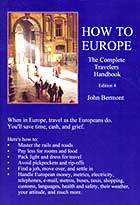 HOW TO EUROPE: The CompleteTravelers Handbook by John Bermont
HOW TO EUROPE: The CompleteTravelers Handbook by John Bermont
This rail timetable is produced by the compilers of the former Thomas Cook European Rail Timetable, my bible for decades of train travel in Europe.
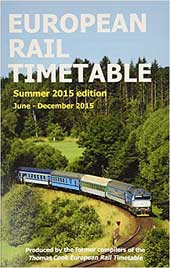 European Rail Timetable
European Rail TimetableSummer 2015
 Europe by Rail:
Europe by Rail:The Definitive Guide for Independent Travellers
Thomas Cook Rail Guides
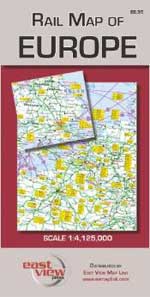 Rail Map of Europe
Rail Map of Europe
Rolling luggage sure beats lugging a pack on your back.
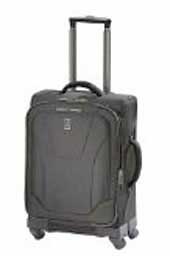 Travelpro Luggage Maxlite 2 20" Expandable Spinner
Travelpro Luggage Maxlite 2 20" Expandable Spinner
A shoulder bag for your daily walk-about.
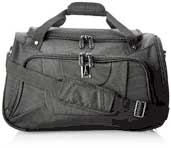 Travelpro Luggage Maxlite3 Soft Tote
Travelpro Luggage Maxlite3 Soft Tote
Keep your stuff organized.

Luggage Packing Cubes
eBags 3pc Set
The details on driving in Europe may save your life.
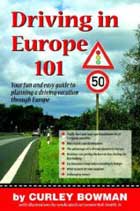 Driving in Europe 101 by Curley Bowman
Driving in Europe 101 by Curley Bowman
A selection of travel guide books.
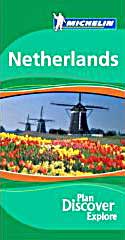 Michelin Green Guide Netherlands, 5e
Michelin Green Guide Netherlands, 5e
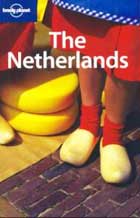 The Netherlands Lonely Planet
The Netherlands Lonely Planet
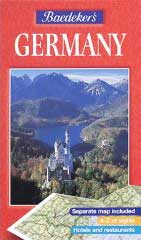 Germany Baedeker's
Germany Baedeker's
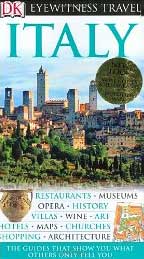 Italy Eyewitness Travel Guides
Italy Eyewitness Travel Guides
Michelin produces superior maps for nearly every place in Europe.
Michelin Maps
London
Paris
Rome
Madrid
Lisbon
Brussels
Berlin
The links in this pink field take you directly to a page at Amazon.com. The Amazon page details the item, and in most cases includes candid and critical comments from others who have bought the item.
Amazon pays my site a small commission when you click and order an item, if you put it in your shopping cart within 24 hours based on the cookie they set on your computer. If you don't want to make a quick decision just put it in your shopping cart, think it over, and come back later. The revenue covers the cost of maintaing this web site and keeps it free to users.
You benefit when buying here because Amazon has:
- 20% - 30% discount on many items,
- free shipping deals, direct to your door,
- no sales tax on internet purchases in most states,
- zillions of products, well almost,
- fast delivery even when it is free,
- shipment tracking in UPS, USPS, FedEx,
- easy returns if you are not happy with the product.
You win we win. Thanks for your support!!
Have a good trip in life,
John Bermont
Note: Italicized notations by the author.
A spot-on humorous introduction to Holland.
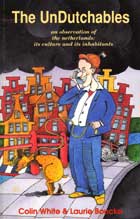 The Undutchables
The Undutchables
by Colin Whiteand Laurie Boucke
The story of the first and greatest financial "bubble" in history.
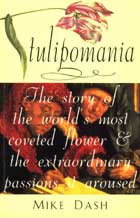 Tulipomania
Tulipomania
by Mike Dash
Two that will get you started in Italy.
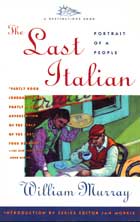 The Last Italian
The Last Italian
by William Murray
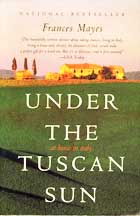 Under the Tuscan Sun
Under the Tuscan Sun
by Frances Mayes
Wear a scarf for comfort and style. Nobody will ever suspect that you are an American.
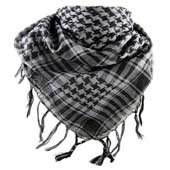 Very soft houndstooth neck scarf, Kanye West style, different colors available
Very soft houndstooth neck scarf, Kanye West style, different colors available

